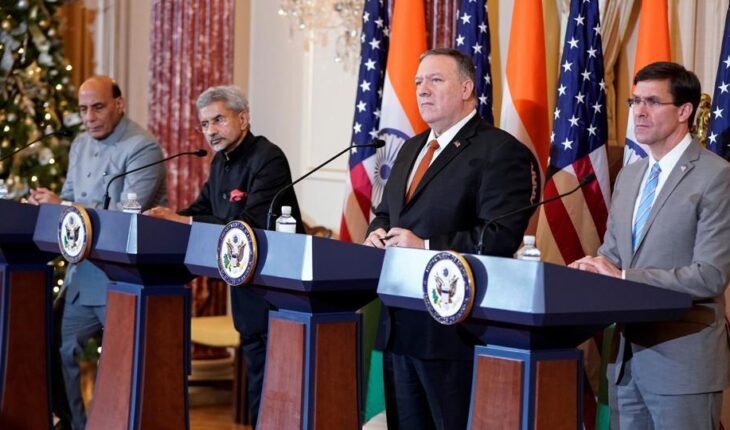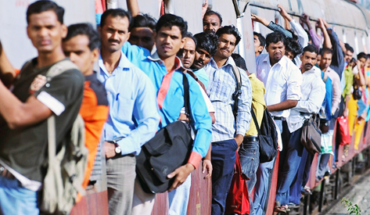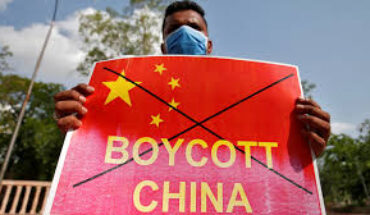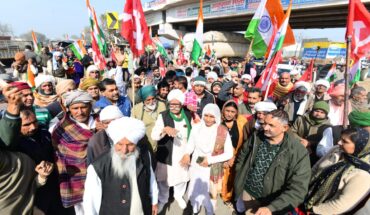Nearly half-a-century has passed, when Beijing decided to import copper from Zambia without seeking consent of South Africa, then under the much-dreaded apartheid regime.
Interestingly, this initiative of Being didn’t receive adequate attention in western capitals as well as among the Europe-oriented mandarins of South Block in New Delhi. During this period, most of the career diplomats in India were seen vying with each other for a cushy posting in Europe instead of taking any challenging assignment either in Africa or Asia. Therefore, it is not surprising that their achievements were usually measured for bringing customs free white goods i.e. refrigerators, air conditioners or television sets. The diplomacy during this period was being done by parroting the non-aligned policy without adopting innovative approaches.for winning friends in Africa.
The South Block, perhaps, is the most important destination in New Delhi. It houses the office of the Prime Minister, and two other key ministries, Defence and External Affairs.
Being not unaware of the clerical approach of the babus of the South Block, in 1971, the then Prime Minister Indira Gandhi had sought support of the country’s top political leaders like Jayaprakash Narain and Atal Bihari Vajpayee for launching the diplomatic offensive against the military crackdown on Bengali Muslims in East Pakistan.
If this Indian diplomacy was in a pathetic state, the US-led western powers too were mostly oriented against the USSR. They have been deliberately endorsing the military dictator’s unprecedented violence against its own unarmed citizens. Since they were also offering secret communication with China, neither the US not its allies really cared about China’s quiet penetration in Africa.
Following getting worldwide recognition accompanied by a permanent seat in the UN Security Council, Dragon successfully embarked upon a well prepared strategy to reach and establish its assets in the vast lands of Africa scripting a sound foundation for initiating financial and strategic ties.
On the other hand, the initial Indian diplomacy in winning friends in Africa visualized during the Nehru era was forgotten. It may be recalled that the poor performance of the Indian diplomacy in non-European destinations could be attributed to the lack of a global vision, it happened despite India’s first Prime Minister Jawaharlal Nehru s genuine efforts for reinventing ties with Africa. Earlier, the presence of Mahatma Gandhi in South Africa, had enriched ties with the region. Gandhi’s struggle against apartheid, was later much-pronounced under the banner of the non-aligned movement.
It, however, was the period, when the then US establishment’s preference for the military dictatorships across the continents of Asia and Africa was well-known. The much-trumpeted American ideals and commitments to democracy were compromised.
Focus on Africa : It is yet to be ascertained whether the two-day second bilateral talks between India and USA held in Washington in the last week of May had any substantial outcome. India was represented by a senior official of her External Affairs Ministry Puneet Kunadal and Catherine, an assistant secretary of State who had led the US team.
Since the outcome of the talks are still under wraps, it is natural that for an observer or scholar of international affairs, it could be described as just symbolic.On the other hand it is estimated that as many as ten thousand Chinese companies are already serving the region.
Under the Shadow of Polls : Both India and the US officials can claim that much should not have been expected from such high-level interactions, especially when both countries are undergoing elections. If this logic could be accepted, Indian officials should have traveled to Washington next month, after the polls. The American side too appears confused, because during its four-year tenure, the Biden Administration has failed to evolve a China-specific diplomatic initiative, instead it is being seen indulging in blow hot and blow cold diplomacy.
For New Delhi, this American policy paralysis is not surprising. Since her emergence as a democratic and independent nation on August 15, 1947, India has always been victimized by the democracy-loving nations led by the US. tion. During the seventies, the then US President Richard Nixon and his National Security Advisor Henry Kissinger were busy romanticizing their new found love for Beijing. They had used the West’s proxy state, Pakistan, carved out by dividing India for serving the West’ strategic interests in the region.
They used Pakistani military dictators to get this new found love with Dragon consummated; though for this the US leadership happily sacrificed three million Bengali Muslims. Apart from this genocide thousands of young Bengali women were violated. Instead of preventing them, Nixon and Kissinger had sent their Seventh Fleet equipped with nuclear missiles and bombers in the Bay of Bengal to prevent India from rescuing the hapless unarmed Muslims being killed by the Pakistani army equipped with the state-of-art American weapons.
Indian Initiative : During the stormy session of the G-20, it was the bold initiative of the Indian PM Narendra Modi that he roped in the 56-member African Union as a permanent member of G-20, thus paving the way for more meaningful initiative in Africa. It is not known whether it is the effort of India or the Whitehouse for initiating multi-level cooperation in Africa, as a followup of the inclusion of the African Union in G-20.
The first Indo-US dialogue on Africa was held in September 2023. Seven months later, their representatives have met again, but not much is known about these exchanges, whether the two sides have evolved any action plan for the uplift of the poor nations of this continent, the victims of the aggressive European colonizers of the past four centuries.
The New Confidence : In spite of the lack of clear policy thrust or an action plan for the African continent, the growing role of the Black Americans in the key areas of the state emanates a new confidence among non-whites across the world. The elevation of General David as the chief of the American air force, the world’ s most powerful war machinery and the Secretary Defence Loyd Austin, a Black, have created unprecedented confidence in the US,
It is hoped that in the coming months, with the installation of the new government in New Delhi, India would be adopting vigorous policy initiatives in the region;, but for an effective American policy, we might have to await the inauguration of new Administration in the US
Gopal Misra has been associated with national and international media. His books on journalism and geo-politics have been well-appreciated. Views are personal.






